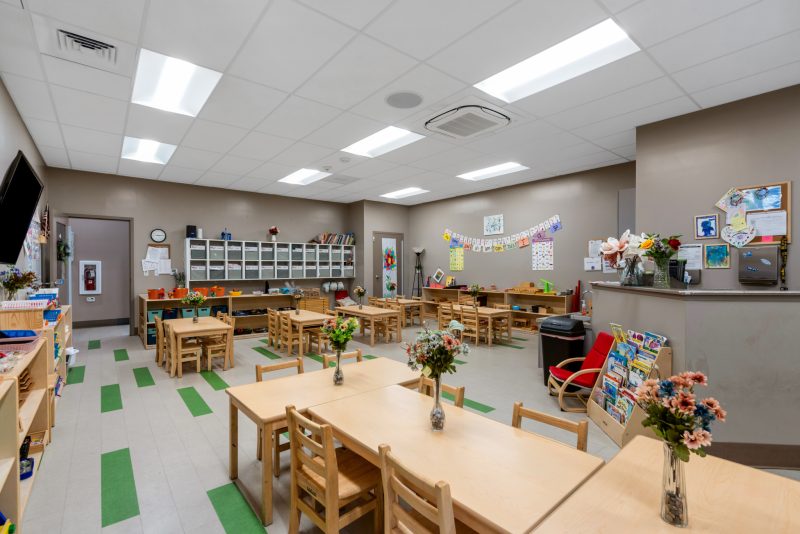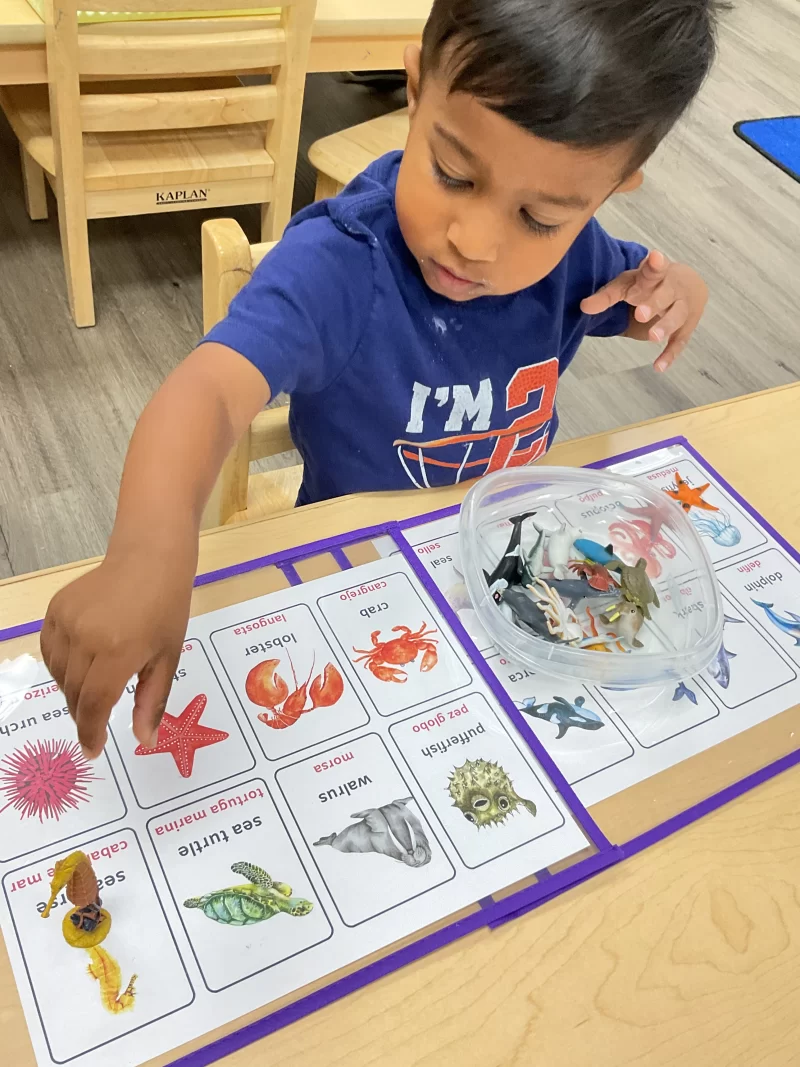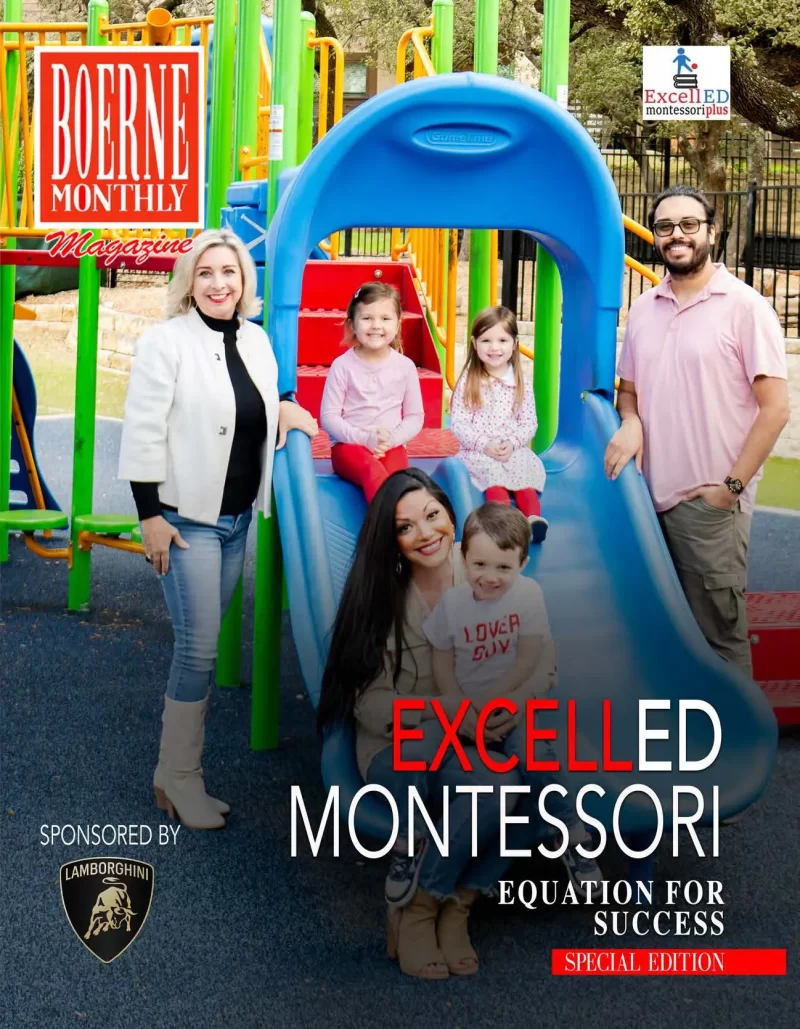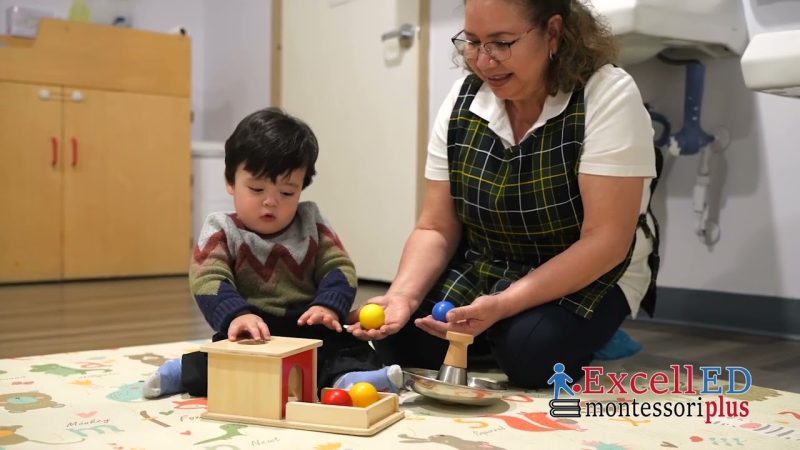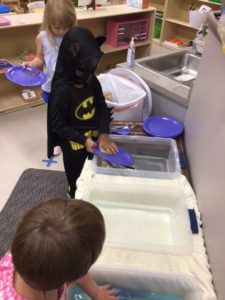
Even Batman washes dishes in the Montessori environment. Dishwashing is an important practical life activity through which children develop concentration, become aware of order and sequencing, gain control over their movements, become more independent, and learn to care for their surroundings.
Dishwashing in the Montessori Environment
Dishwashing activities can help children develop hand-eye coordination, fine motor control, and attention to detail. They also provide children with a sense of responsibility and a sense of helping to care for their environment. Montessori dishwashing activities are usually designed to be hands-on, self-correcting, and engaging. For example, children may be shown how to wash dishes using a specific technique and then given the opportunity to practice the skill on their own with real dishes.
Additionally, this activity encourages children to develop independence, concentration, and a sense of order. They will learn to take care of their tools, maintain the area’s cleanliness, and handle utensils safely.
In a Montessori classroom, dishwashing can be presented as a sequence of progressive exercises starting with simple activities such as wiping a table and rinsing off dishes to more complex ones such as loading and unloading a dishwasher or washing dishes by hand.
A quick introduction to Practical Life Activities

Montessori practical life activities help children develop self-care skills, care of the environment, and care of others. These activities aim to foster independence, concentration, and coordination in children. Some examples of Montessori practical life activities include:
- Care of self: activities such as dressing frames, buttoning, zipping, and shoe lacing to help children learn how to dress themselves.
- Care of the environment: activities such as sweeping, dusting, and polishing to help children learn how to take care of their surroundings.
- Care of others: activities such as setting a table, serving food, and folding laundry to help children learn how to care for others.
- Cooking and food preparation: activities such as cracking eggs, grating cheese, and making simple recipes to help children learn about food and nutrition.
- Fine motor skills: activities such as transferring with tongs, pouring, and threading beads to help children develop fine motor skills.
- Grace and courtesy: activities such as learning manners, greeting people, and responding to social situations to help children learn how to interact with others.
Integrating Dishwashing into the Classroom
Educators can create a designated dishwashing station with all the necessary materials, including a sink, sponges, dish soap, and drying racks to incorporate dishwashing into a Montessori classroom. It’s essential to maintain safety by ensuring children use non-toxic cleaning products and have supervision during the activity.
Tips for Educators
- Model the Activity: Before children start dishwashing, demonstrate the proper technique and explain each step.
- Encourage Independence: Allow children to take the lead in dishwashing, offering guidance and support as needed.
- Make it Fun: Incorporate playful elements, such as colorful sponges or dish towels, to make dishwashing enjoyable for preschoolers.
- Celebrate Achievements: Acknowledge children’s efforts and celebrate their accomplishments to reinforce positive behavior.
Dishwashing in the Montessori environment isn’t just about cleaning—it’s a way for preschoolers to learn, grow, and have fun. When children engage in these practical life activities, they develop essential skills and embrace the joy of teamwork and responsibility. As they scrub, rinse, and dry, they can imagine they’re superheroes themselves, using their “superpowers” to keep the classroom shining. With every dish washed and dried, they get one step closer to mastering the art of real-world skills. So, grab a cape, get those hands soapy, and let’s make cleaning as exciting as saving the day!
Subscribe to Newsletter
Programs offered at ExcellED Montessori Plus include:
✔️Infants (10 Weeks – 18 Months)
✔️Toddlers (18 – 36 Months)
✔️Primary (3-6 Years)
✔️Kindergarten
✔️Mother’s Day Out
✔️Spanish Immersion / Dual Language
✔️After School Programs and Summer Camp (6 – 12 Years)
Music, Spanish, and Yoga are other programs included as part of the tuition.
Learn more about Inquiry-based Learning


